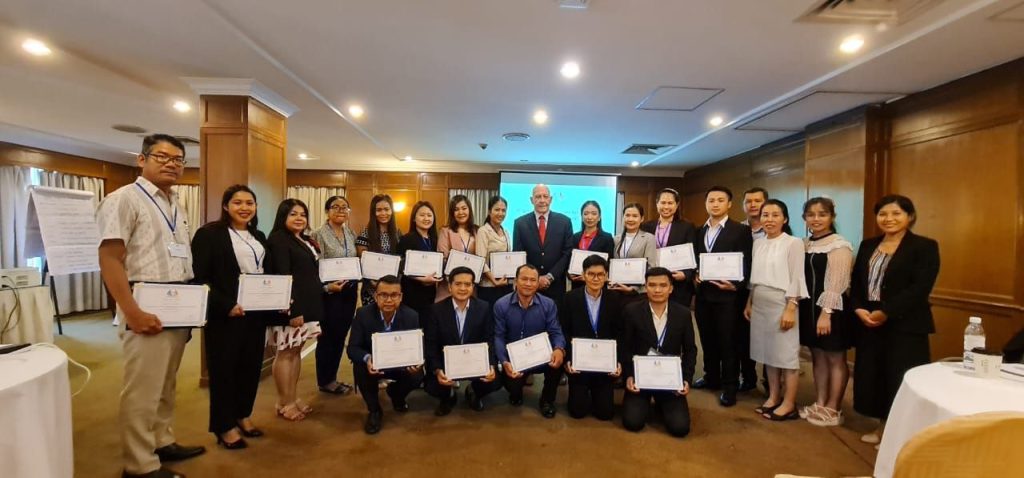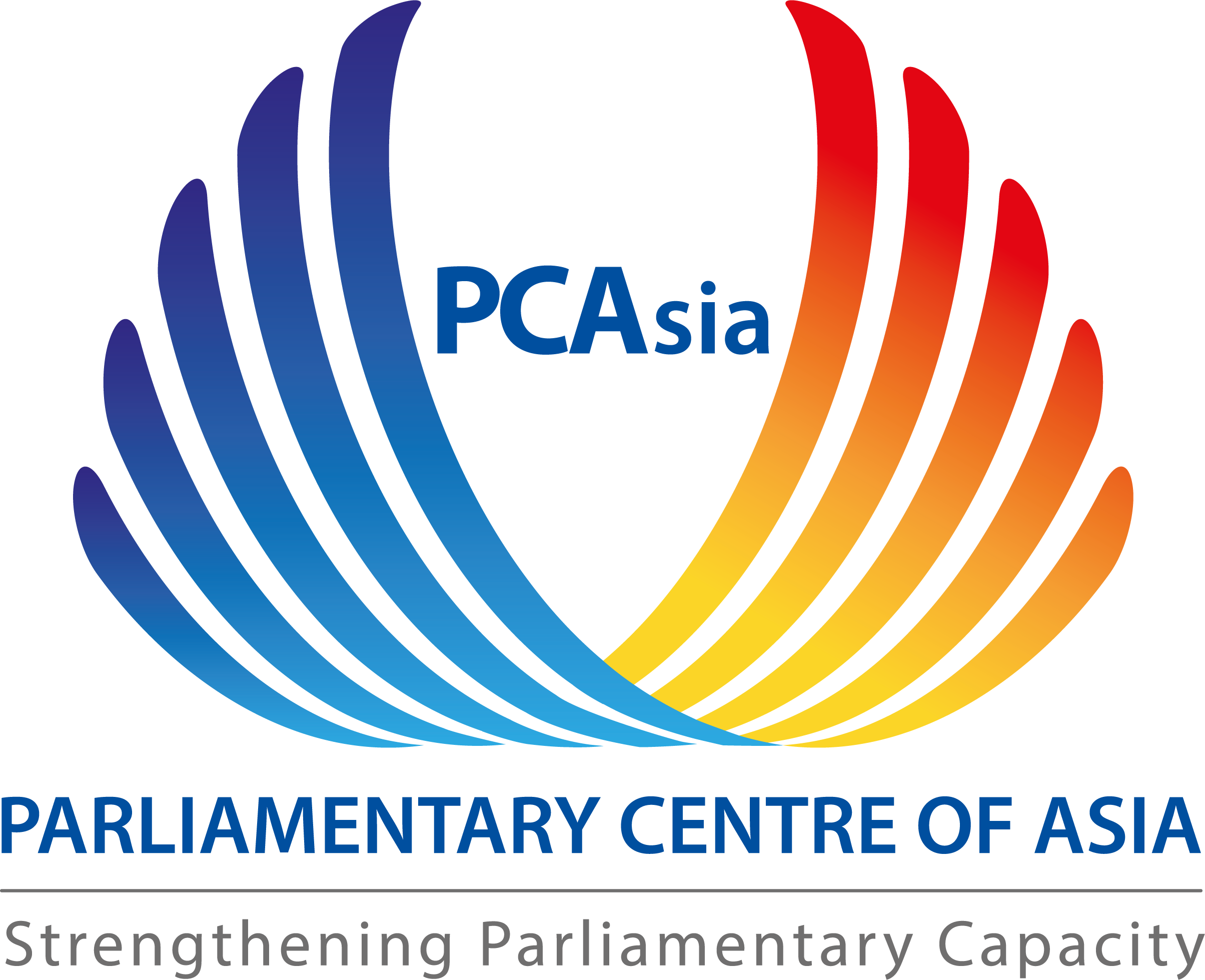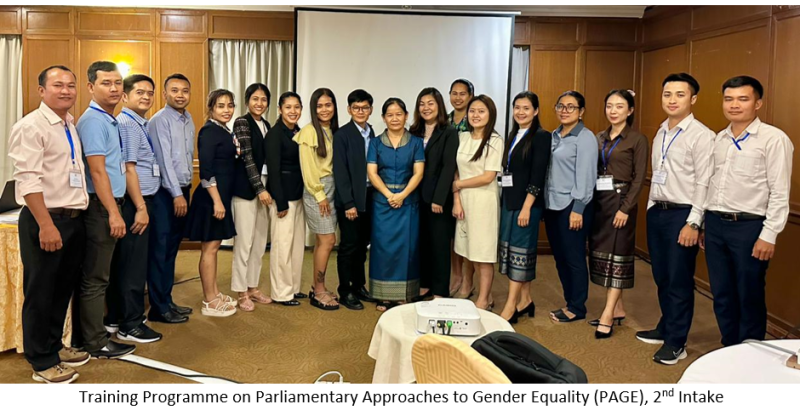Phnom Penh, 4 December 2023
PCAsia conducted a training programme on Parliamentary Approaches to Gender Equality (PAGE), 2nd intake, in Phnom Penh, Cambodia for one week (4 to 8 December 2023). This programme was delivered with participation of 18 parliamentary staff (11 women and 7 men) from the three MoU partner parliaments, of Cambodia, Lao PDR, and Thailand.
The training is designed to broaden parliamentary staff’s understanding and awareness of gender equality concepts, principles and tools (P.L.A.N.E.T) used to mainstream gender equality, as well as to enable them to apply the concepts, principles, and tools through practical exercises related to their respective functions and duties.
The training was conducted in English and focused on:
- Introduction to Gender-Sensitive and Inclusive Parliaments
- Tools for Promoting Gender Equality Outcomes in Parliaments
- Parliamentary methods and role in empowering women and girls and implementing the Sustainable Development Goals (SDG)
- [JC1] for other Emerging Issues.
In addition to the above-mentioned topics, there were special lectures on Introduction to Critical Thinking, Climate Change and Gender as cross-cutting parliamentary themes, Gender Equality Plan (FEP) and Gender Monitoring by Ms. TE Vouchlim, Director of Statistics and Planning of the Ministry of Women’s Affairs.
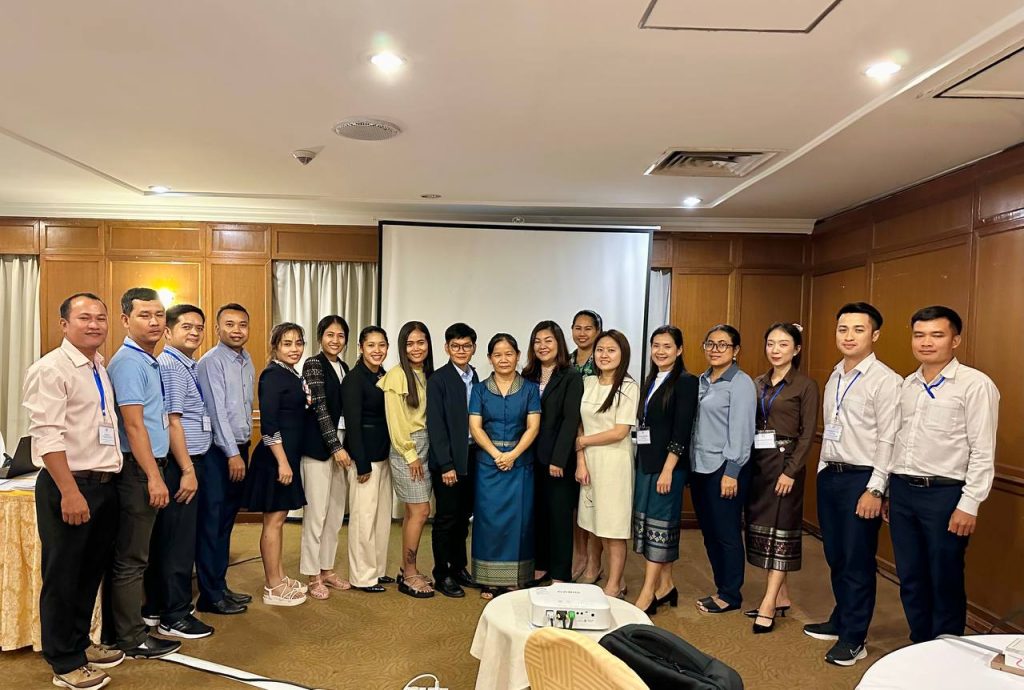
The training also included a visit to the Cambodian National Assembly during which the trainees visited the Plenary Hall, Exhibition Hall and Library. Following this, there was a special lecture on “Cambodia’s Parliamentary Approach on Gender Equality and Practices” delivered by Ms. MITH Chanlinda, Director of the Research Department in charge of National Affairs, of the National Assembly of Cambodia.
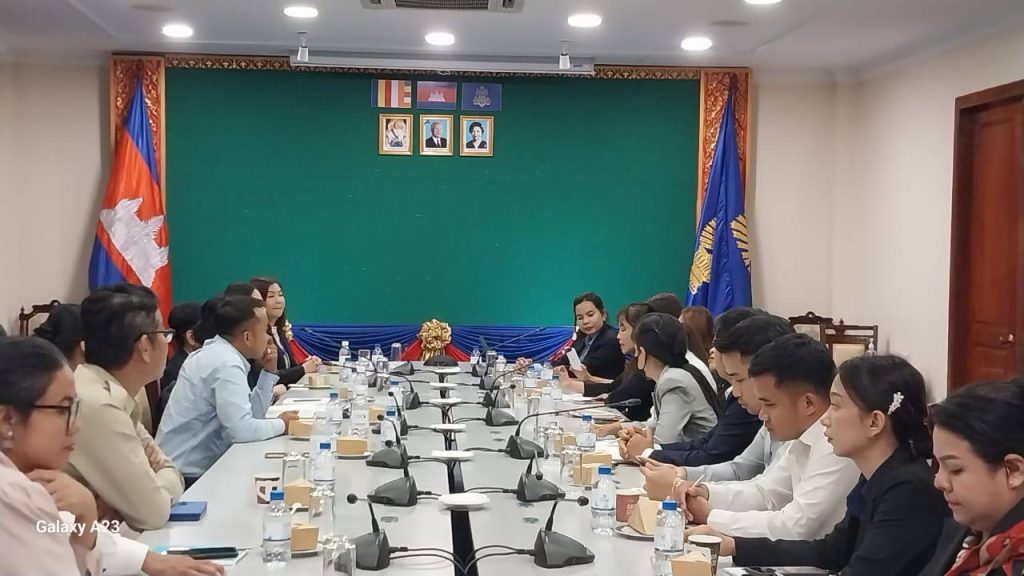
On the final day of the training, a Certificate Handover Ceremony was organised to congratulate all trainees who fully and actively participated in the five-day training.
During the ceremony trainee representatives from each country had the opportunity to briefly express their views that the training will help them in their work to support Members of Parliament and Senators to exercise their roles more effectively through taking into account gender issues, in order to become more inclusive. They also hoped to have this training either in Laos or Thailand in the near future. While others noted that it was a valuable opportunity for them to be updated on new knowledge and skills including the constraints that women face in positions of leadership, and also how to integrate gender issues into policy making to become a more gender-sensitive and inclusive parliament. Last but not least, participants appreciated the opportunity that the training brings for networking with other trainees from different parliaments to enhance their cooperation for the benefit of their parliament.
